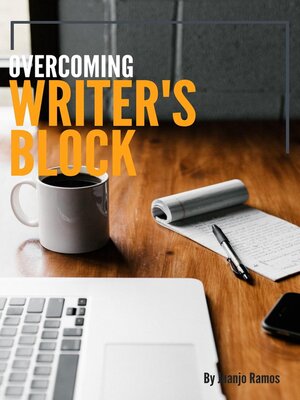
Sign up to save your library
With an OverDrive account, you can save your favorite libraries for at-a-glance information about availability. Find out more about OverDrive accounts.
Find this title in Libby, the library reading app by OverDrive.



Search for a digital library with this title
Title found at these libraries:
| Library Name | Distance |
|---|---|
| Loading... |
Writer's block is a commonly used term to refer to a situation where a writer is having trouble continuing to write. Writer's block means not knowing what to write, having no ideas or not knowing how to express them properly. This can be due to a wide range of factors, such as a lack of inspiration, difficulties in finding the right words, stress, worries about whether what is being written is good enough, or a lack of motivation, among others. Sometimes we may be motivated, but we are too tired or we feel we have exhausted our pool of ideas. Writer's block can be a serious obstacle to the creative process and can make the writer feel frustrated and discouraged.
Most of us have experienced writer's block at some point. We sit down in front of a piece of paper or a screen and don't know where to start or what to write. We get lost in thought staring at the screen, but the words don't flow. The longer the writer's block lasts, the more frustrated and stressed we will feel.
Writer's block means not knowing what to write. It can refer to the content (i.e. not having the right ideas), to the creative part, or to problems expressing ideas properly in words.
Writer's block can be costly in financial terms. Millions of students, teachers, advertisers, journalists, and many other professionals have to write almost daily. Writer's block can directly affect their performance and income.
But what are the main causes of writer's block? How do professional writers cope with this situation?
According to research on this phenomenon, the main causes of writer's block were found to be reasons such as not having a "clear" mind due to stress, intense emotions, or illness. Other reasons were motivational in nature, such as fear of criticism, excessive perfectionism, poor planning, and procrastination.
As you will see in this book, the success strategies of professional writers to overcome writer's block include taking breaks, changing the subject of work or practicing free writing, among many other techniques that you will learn.







